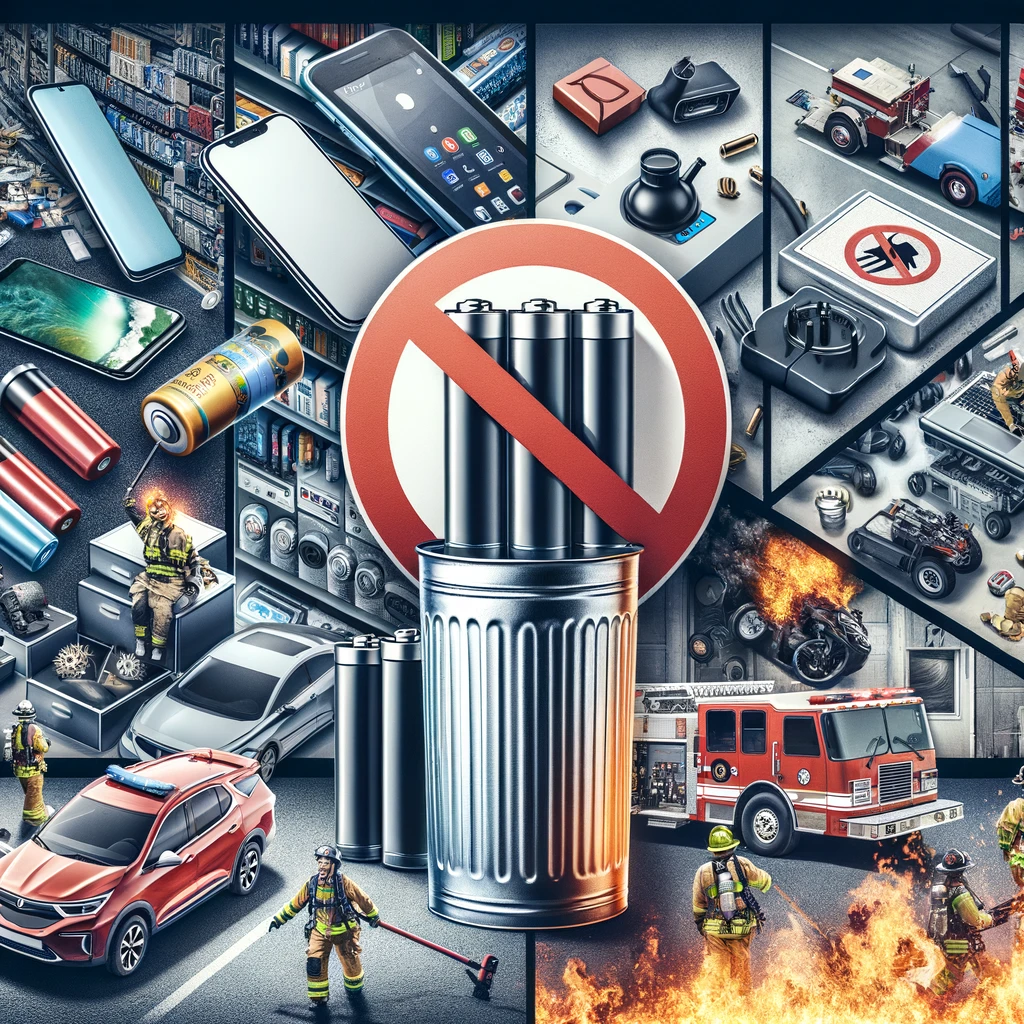
San Diego regulates lithium-ion batteries
San Diego Introduces Regulations for the Safety and Disposal of Lithium Batteries: Pioneering Initiative for Responsible and Safe Use
In a bid to address safety concerns and promote responsible disposal practices, San Diego is set to become the first city in the county to introduce comprehensive regulations governing the storage and disposal of lithium-ion batteries. These versatile batteries have found their way into our everyday lives, powering everything from electric vehicles to smartphones and laptops. However, their potential for hazardous incidents has raised alarm bells, prompting city officials to craft legislation that aims to strike a balance between harnessing their benefits and mitigating associated risks.
City leaders acknowledge the significant role lithium-ion batteries play in reducing greenhouse gas emissions and combating climate change. Their energy efficiency and versatility have positioned them as a cornerstone of modern technology. Nevertheless, recent incidents involving battery-related fires and injuries have highlighted the need for a regulatory framework to ensure public safety.
“We’re not trying to eliminate them — we’re trying to make sure they are safer for consumers and our first responders,” stated Councilmember Marni von Wilpert, who is leading the effort to create new city laws.
The heightened risks posed by lithium-ion batteries stem from their higher energy density, which makes them more susceptible to ignition or the release of dangerous gases when damaged or exposed to extreme heat. This year alone, San Diego has witnessed four trash truck fires attributed to lithium-ion batteries, causing over $2 million in damages. Fears also loom over improper disposal methods, which could potentially result in battery fires in trash cans or at the Miramar landfill.
While there have been no fatalities directly attributed to these incidents in the city, there have been numerous cases of injuries, burns, and smoke inhalation. In response, San Diego’s firefighters have adopted revised procedures for tackling lithium-ion battery fires, accompanied by specialized training and exploration of novel firefighting tools. Battalion Chief Rob Rezende emphasized the challenges faced by firefighters, stating, “There’s no way for us to extinguish a battery fire once it’s happening inside the battery. There’s no amount of water that will stop it.”
Councilmember von Wilpert’s proposed regulations encompass zoning restrictions on the locations of large-scale lithium-ion battery storage facilities and a framework governing the sale, storage, use, rental, and disposal of these batteries. The Public Safety Committee unanimously endorsed this proposal, directing City Attorney Mara Elliott to collaborate with von Wilpert and city fire officials to develop the necessary laws and regulations.
In addition to regulatory measures, the city is actively promoting public awareness through a comprehensive education campaign. The campaign will educate residents on the correct usage, charging, storage, and disposal of lithium-ion batteries, emphasizing the importance of never disposing of them in regular trash or recycling bins. Special drop-off locations and eight annual bulb and battery collection events are available for responsible disposal.
Fire officials have issued guidelines for recognizing battery-related hazards, including signs like hissing or the release of white gas from lithium-ion batteries. Moreover, these batteries can emit potentially harmful gases such as hydrogen fluoride, pure hydrogen, or carbon monoxide, adding to the urgency of their safe handling.
Recent incidents, such as a significant evacuation in Valley Center and a battery explosion in Barrio Logan, serve as stark reminders of the risks posed by lithium-ion batteries. The displaced Carlsbad family whose electric scooter caught fire and the United Airlines flight forced to make an emergency landing due to a passenger’s external battery pack catching fire further underline the need for enhanced safety measures.
Lithium-ion batteries, which date back to the 1990s, have become increasingly prevalent in recent years with the proliferation of smartphones, electric vehicles, and various other devices. Furthermore, their use extends to lawn equipment like leaf blowers and hedgers. As California moves toward a mandate requiring all new cars to be zero-emission by 2035, the prevalence of lithium-ion batteries is set to soar.
California, anticipating this surge in usage, enacted SB 1215 last year. While the law doesn’t directly regulate lithium-ion battery use, it mandates recycling fees for products containing these batteries, commencing in 2026. This measure seeks to ensure responsible disposal and recycling practices for these batteries.
San Diego’s proactive stance on regulating lithium-ion batteries underscores the city’s commitment to public safety and environmental responsibility. By striking a balance between harnessing the benefits of these batteries and minimizing the associated risks, San Diego is setting an example that other regions may follow as lithium-ion batteries continue to play a pivotal role in our evolving technological landscape.


